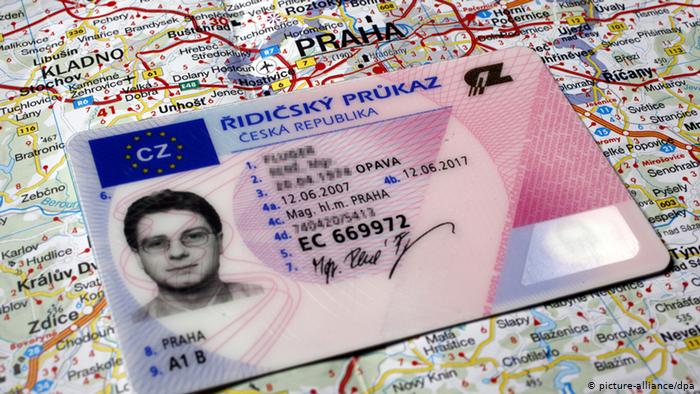The 10 Scariest Things About Get A Driving License In The Czech Republic

Getting a Driving License in the Czech Republic: A Comprehensive Guide
Acquiring a driving license in the Czech Republic can initially seem intimidating to lots of newcomers and expats. Nevertheless, with the best assistance and understanding of the process, it can be a smooth and fulfilling experience. This short article supplies an in-depth look at the actions required to acquire a driving license in the Czech Republic, the classifications of licenses readily available, and some frequently asked concerns to assist clarify any doubts.
Kinds Of Driving Licenses in the Czech Republic
In the Czech Republic, driving licenses are categorized based on the kind of vehicle one is entitled to run. The main classifications are as follows:
Classification A: This license is for bikes.
Subcategory A1: For lighter motorbikes with engine capacities up to 125cc.
Subcategory A2: For motorbikes with an engine capability higher than 125cc however with a minimal output of 35 kW.
Category B: This is the most common classification, enabling holders to drive motor lorries with a maximum allowed weight of 3,500 kg and with approximately 8 traveler seats.
It likewise entitles the holder to drive cars within category B1 (light quadricycles) and enables towing a trailer with an optimum weight of 750 kg.
Category C: This category refers to cars heavier than 3,500 kg, such as trucks.
Category D: This license is essential for driving buses capable of carrying more than 8 guests.
Category E: This classification is for combinations of cars, like hauling trailers over 750 kg with a vehicle in categories B, C, or D.
Steps to Obtain a Driving License
For people seeking to get their driving license in the Czech Republic, the procedure typically includes a number of key actions:
1. Select the Right Driving School
Selecting a licensed driving school is vital. There are many trusted driving schools throughout the nation. Prospective motorists need to search for schools that use thorough training programs that cover both theoretical and practical lessons.
2. Enroll and Begin Theory Lessons
Upon choosing a driving school, people require to enlist and commence their theory lessons. These sessions cover important traffic rules, road indications, and safe driving practices. A strong grasp of these ideas is essential to pass the theoretical examination.
3. Total the Mandatory Medical Examination
Before progressing to useful driving lessons, prospects should go through a medical exam performed by a signed up physician. This evaluation validates that the individual is fit to drive and fulfills particular health requirements.
4. Complete Practical Driving Lessons
Following the theory lessons, candidates will undertake practical driving lessons. These sessions provide hands-on experience in operating a vehicle under the assistance of a qualified trainer. The variety of lessons differs depending upon the person's learning pace, but the majority of schools suggest around 20 to 30 hours of useful instruction.
5. Pass the Theoretical Exam
After completing theory lessons, candidates must take the theoretical exam. This examination usually includes multiple-choice concerns covering traffic guidelines and safe driving practices. A passing score is required to advance to the next action in the process.

6. Pass the Practical Driving Exam
As soon as prospects have effectively completed the theoretical exam, they can arrange their practical driving test. Throughout this test, candidates will demonstrate their driving abilities in various situations. Effective conclusion of this examination is vital to obtain a driving license.
7. Collect Your Driving License
Upon passing both tests, candidates can request their driving license through the relevant local workplace (úřad dopravy). Required documents generally consist of:
A completed application type.
Proof of identity (passport or ID card).
führerschein in tschechien kosten .
Proof of passing theoretical and useful exams.
A recent passport-sized picture.
After processing the application, the driving license will be provided.
Fees and Duration
The total cost of obtaining a driving license can vary widely depending on the driving school and the specific license classification. Generally, it varies from CZK 15,000 to CZK 30,000 (approximately EUR600 to EUR1,200). The period for completing the process can take anywhere from a couple of weeks to several months, based on personal readiness and accessibility of useful sessions.
Regularly Asked Questions (FAQs).
1. Can Foreigners Obtain a Driving License in the Czech Republic?
Yes, immigrants can acquire a driving license in the Czech Republic, supplied they satisfy the required requirements, including completing the suitable training and tests. Those holding a valid driving license from another nation may have the ability to exchange it for a Czech license, depending on bilateral agreements.
2. Is It Necessary to Speak Czech to Obtain a License?
While it is possible to discover driving schools that provide lessons in English and other languages, understanding the Czech language might enhance the learning experience. The theoretical exam is primarily carried out in Czech; hence, familiarity with the language may be helpful.
3. How Long is a Driving License Valid in the Czech Republic?
A Czech driving license stands for ten years, after which holders will require to renew it. Holders of particular categories, specifically those associated to commercial driving, should go through regular medical checkups.
4. Can I Drive in Other EU Countries with a Czech License?
Yes, a legitimate Czech driving license enables you to drive in any EU country with no extra requirements. Nevertheless, it is recommended to check particular guidelines of the nation you prepare to check out.
Conclusion.
Getting a driving license in the Czech Republic involves a series of well-defined steps, including finishing both theoretical and practical training. By comprehending the categories of licenses and preparing sufficiently for the essential examinations, aiming chauffeurs can successfully navigate the process. This journey not only grants the ability to drive however also fosters a higher understanding of road safety and regulations, making sure more secure roads for all.
